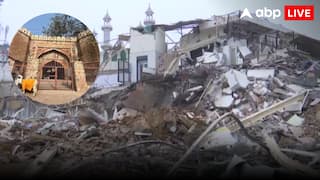Presidential Polls: SAD And JD (S) Announce Support For NDA’s Nominee Droupadi Murmu
Earlier in the day, the SAD while extending support to Murmu passed a resolution at a meeting of the party’s core committee in Chandigarh.

New Delhi: The Shiromani Akali Dal (SAD), a former alliance partner of the ruling Bharatiya Janata Party (BJP), and the Janata Dal (Secular) on Friday announced to support National Democratic Alliance (NDA) nominee Droupadi Murmu for the presidential elections.
This came after SAD chief Sukhbir Singh Badal and former prime minister and Janata Dal (Secular) leader H D Deve Gowda had a conversation with BJP national president J.P. Nadda, news agency Asian News International (ANI) reported.
Earlier in the day, the SAD while extending support to Murmu passed a resolution at a meeting of the party’s core committee in Chandigarh.
The resolution said that she has “emerged as a symbol of the poor and tribal segments” in the country.
The SAD took the decision in this regard a day after the BJP national president reached out to Badal to seek support for Murmu.
The SAD, which was one of the oldest allies of the BJP, walked out of the NDA earlier in September 2020 to oppose the passage of the Farmers’ Bill.
ALSO READ: Presidential Polls | Would Have Supported ‘Tribal’ Droupadi Murmu Had BJP Discussed: Mamata Banerjee
The Opposition has fielded Yashwant Sinha, a former bureaucrat and a union minister during the Atal Bihari Vajpayee government, as its candidate in the presidential election. Sinha had quit the BJP in 2018 and joined the TMC earlier in March last year.
The presidential election will be on July 18 and the results will be declared three days later on July 21, the Election Commission (EC) announced last month.
President Ram Nath Kovind’s term ends on July 24.
According to the Constitution, a new President has to be appointed before his term ends.
The President is elected by an electoral college comprising 776 members of the Parliament and 4,033 members of the legislative assemblies.
The nominated MPs and members of the legislative council are not allowed to vote.





































